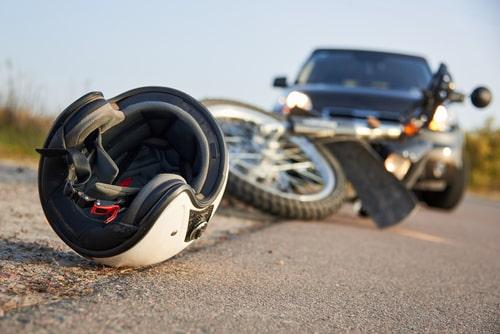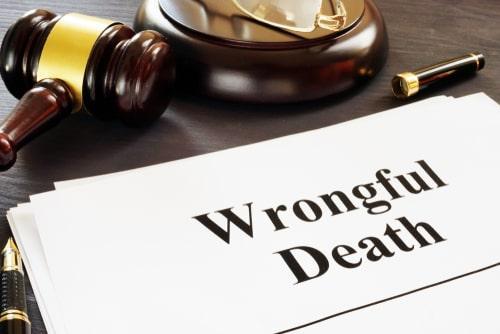Recent Blog Posts
When Can Spinal Cord Injuries Lead to Partial or Total Paralysis?
Posted on October 13, 2021 in Personal Injury
 The spinal cord is one of the body’s most important systems. This bundle of nerves, which runs through the vertebrae in the backbone, transmits information to and from the brain and most of the rest of the body. Any issues that disrupt these signals can affect a person’s ability to move or feel sensations in different parts of their body. Because of this, spinal cord injuries can be very serious and depending on the location and severity of an injury, a person may suffer permanent disabilities.
The spinal cord is one of the body’s most important systems. This bundle of nerves, which runs through the vertebrae in the backbone, transmits information to and from the brain and most of the rest of the body. Any issues that disrupt these signals can affect a person’s ability to move or feel sensations in different parts of their body. Because of this, spinal cord injuries can be very serious and depending on the location and severity of an injury, a person may suffer permanent disabilities.
Types of Spinal Cord Injuries
Injuries to the spinal cord may be complete or incomplete. Fractured vertebrae, herniated discs in the spine, or other issues that damage the spinal cord may result in incomplete spinal cord injuries. These injuries will usually involve the loss of some function, but a person may not suffer complete paralysis. Complete spinal cord injuries, on the other hand, will involve severe damage to the spinal cord, including cases where the spinal cord is completely severed. These injuries will often involve total paralysis. While surgery or other forms of treatment may help minimize future harm, damage to the spinal cord is often irreversible.
Continue Reading ››
When Are Non-Compete Agreements Enforceable in Connecticut?
Posted on September 27, 2021 in Business Law
 Businesses have a number of methods that may be used to protect their interests. One issue that may need to be addressed is the possibility that an employee may leave the company and use their knowledge of the business’s operations, client base, or trade secrets to gain an unfair competitive advantage against the company. This issue may be addressed by having employees sign a non-compete agreement. However, employers will want to understand when these types of agreements may be used and when they can be enforced.
Businesses have a number of methods that may be used to protect their interests. One issue that may need to be addressed is the possibility that an employee may leave the company and use their knowledge of the business’s operations, client base, or trade secrets to gain an unfair competitive advantage against the company. This issue may be addressed by having employees sign a non-compete agreement. However, employers will want to understand when these types of agreements may be used and when they can be enforced.
Enforcement of Restrictive Covenants
A non-compete agreement may place restrictions on an employee, limiting the types of companies they can work for, the positions they can hold, and the business activities they can participate in. If a former employee who had signed a non-compete agreement violates these terms, their former employer may take legal action, and they may ask that the person be required to follow the terms of the agreement or pay damages for any financial losses that occurred because of the violation.
Continue Reading ››
5 Common Types of Driver Negligence That Lead to Motorcycle Accidents
Posted on September 13, 2021 in Personal Injury
 Motorcyclists face significant risks when they use the roads. Without the protection provided by the structure of a passenger vehicle or safety features such as seat belts and airbags, a person can be seriously injured in a motorcycle accident. A motorcyclist can suffer serious harm when their body is struck by a car or truck, and they may also be thrown from their motorcycle and suffer additional injuries when they hit the ground or other objects on or near the road. A motorcyclist may suffer additional injuries if they are thrown into the path of other vehicles, and being run over by a car or truck can result in permanent disabilities or wrongful death. In many cases, motorcycle accidents are caused by the negligence of other drivers, and victims can work with an attorney to pursue financial compensation from those who were responsible for their injuries.
Motorcyclists face significant risks when they use the roads. Without the protection provided by the structure of a passenger vehicle or safety features such as seat belts and airbags, a person can be seriously injured in a motorcycle accident. A motorcyclist can suffer serious harm when their body is struck by a car or truck, and they may also be thrown from their motorcycle and suffer additional injuries when they hit the ground or other objects on or near the road. A motorcyclist may suffer additional injuries if they are thrown into the path of other vehicles, and being run over by a car or truck can result in permanent disabilities or wrongful death. In many cases, motorcycle accidents are caused by the negligence of other drivers, and victims can work with an attorney to pursue financial compensation from those who were responsible for their injuries.
Continue Reading ››
When Is Conservatorship Used in Connecticut?
Posted on August 24, 2021 in Estate Planning
 There are a variety of situations in which adults may not be able to fully care for themselves. In some cases, an elderly or disabled adult may be looking to create a legal arrangement in which someone they trust will be able to provide them with the care they need and help them manage their finances. In others, a person’s loved ones may wish to give themselves the legal authority to make decisions on the person’s behalf. While these types of arrangements are usually referred to as guardianships, the state of Connecticut uses the term “conservatorship,” and different types of conservatorship may be appropriate depending on a person’s circumstances.
There are a variety of situations in which adults may not be able to fully care for themselves. In some cases, an elderly or disabled adult may be looking to create a legal arrangement in which someone they trust will be able to provide them with the care they need and help them manage their finances. In others, a person’s loved ones may wish to give themselves the legal authority to make decisions on the person’s behalf. While these types of arrangements are usually referred to as guardianships, the state of Connecticut uses the term “conservatorship,” and different types of conservatorship may be appropriate depending on a person’s circumstances.
Conservatorship in Connecticut
A probate court may appoint a person as the conservator of someone who is incapable of caring for themself or managing their own financial affairs. A conservator of the person will supervise the person’s health and personal needs, ensuring that they receive the proper food, clothing, shelter, and medical care. A conservator of the estate will supervise a person’s finances, including managing their property and assets and determining how any income or benefits earned by the person will be used. A person may serve as both types of conservator, or one person may be appointed as the conservator of the person, while another person, organization, or financial institution may be appointed as the conservator of the estate. However, a nursing home or hospital cannot serve as a person’s conservator.
Continue Reading ››
What Are the Long-Term Effects of Traumatic Brain Injuries?
Posted on August 11, 2021 in Personal Injury
 There are a variety of situations where a person may suffer a traumatic brain injury (TBI), such as a car accident, slip-and-fall accident, or assault. Even though injuries that affect the brain may not be as immediately obvious as other types of bodily harm, they can have a huge impact on a person’s health and well-being. Unfortunately, TBIs are not always easy to recognize, and their effects may not become fully known until days or weeks after a person was initially injured. By understanding the long-term impact of a brain injury, victims can recognize how these injuries have affected their lives, and they can take steps to recover compensation from the person or parties who were responsible.
There are a variety of situations where a person may suffer a traumatic brain injury (TBI), such as a car accident, slip-and-fall accident, or assault. Even though injuries that affect the brain may not be as immediately obvious as other types of bodily harm, they can have a huge impact on a person’s health and well-being. Unfortunately, TBIs are not always easy to recognize, and their effects may not become fully known until days or weeks after a person was initially injured. By understanding the long-term impact of a brain injury, victims can recognize how these injuries have affected their lives, and they can take steps to recover compensation from the person or parties who were responsible.
Long-Term Symptoms of TBIs
A mild traumatic brain injury, which is usually referred to as a concussion, may result in short-term symptoms, such as loss of consciousness, headaches, dizziness, and temporary memory loss. In many cases, these symptoms will last for a few weeks, but if they persist for longer, this may be a sign of a more serious injury. In some cases, these injuries may result in blood clots in the brain, and emergency medical treatment or surgery may be needed to correct this issue.
Continue Reading ››
What Remedies Are Available in a Breach of Contract Lawsuit?
Posted on July 22, 2021 in Business Law
 Contractual agreements are crucial for businesses. They may be used when making significant transactions, entering into a relationship with another business, or ensuring that employers and employees understand their rights and requirements. However, businesses may encounter situations where one party to a contract does not follow their legal obligations. In cases involving contract disputes, the parties will need to understand the potential remedies that may be available if a court determines that one party has committed a breach of contract.
Contractual agreements are crucial for businesses. They may be used when making significant transactions, entering into a relationship with another business, or ensuring that employers and employees understand their rights and requirements. However, businesses may encounter situations where one party to a contract does not follow their legal obligations. In cases involving contract disputes, the parties will need to understand the potential remedies that may be available if a court determines that one party has committed a breach of contract.
Breach of Contract Remedies
During a civil lawsuit, a judge or jury will review the facts of the case to determine whether a breach of contract occurred. If the court finds that one party has not followed the terms of the contract, certain remedies may be awarded to the other party. These may include:
-
Compensatory damages - The breaching party may be ordered to pay compensation to the non-breaching party. Different types of damages may be available, and they will usually address the monetary losses that the non-breaching party has experienced, including losses that occurred indirectly because the breaching party did not meet its obligations. Liquidated damages may be awarded if a contract specifies an amount that will be paid if one party breaches the contract’s terms. If the breaching party willfully or maliciously violated the terms of the contract or acted fraudulently, punitive damages may be awarded as a form of punishment.
Continue Reading ››
What Damages Can a Family Receive in a Connecticut Wrongful Death Case?
Posted on July 09, 2021 in Car Accidents
 The loss of a loved one can be difficult in any circumstances, but these situations can be especially hard when a person was killed due to someone else’s actions. In these cases, a family will not only experience emotional trauma because of their loss, but they will most likely encounter financial problems related to issues such as medical bills and an unexpected loss of the income the deceased person would have earned. To address these and other losses, family members may pursue a wrongful death claim against the person or company responsible for their loved one’s death.
The loss of a loved one can be difficult in any circumstances, but these situations can be especially hard when a person was killed due to someone else’s actions. In these cases, a family will not only experience emotional trauma because of their loss, but they will most likely encounter financial problems related to issues such as medical bills and an unexpected loss of the income the deceased person would have earned. To address these and other losses, family members may pursue a wrongful death claim against the person or company responsible for their loved one’s death.
Connecticut Wrongful Death Cases
Under Connecticut law, a party who was legally responsible for a person’s death may be held liable for damages caused to the person’s family members. A legally responsible party may include a driver who caused a car accident in which a person was killed, a driver or company that was liable for a fatal truck accident, or a person who committed homicide or inflicted fatal injuries in an assault. A liable party may be required to compensate a family for medical expenses related to their loved one’s treatment, including the costs of hospitalization and nursing, as well as funeral expenses and other “just damages.” Recoverable damages will include:
Continue Reading ››
Understanding Severance Agreements in Connecticut
Posted on June 25, 2021 in Business Law
 Severance agreements contain important rights and responsibilities for both employers and employees. Whether you are an employer or an employee who has been asked to sign a severance contract, it is crucial that you understand what you are agreeing to. Failing to understand what the severance agreement actually means can lead to stress, misunderstandings, and even lawsuits. This is why it is important to discuss any questions and concerns you have about severance packages with an experienced employee contracts lawyer.
Severance agreements contain important rights and responsibilities for both employers and employees. Whether you are an employer or an employee who has been asked to sign a severance contract, it is crucial that you understand what you are agreeing to. Failing to understand what the severance agreement actually means can lead to stress, misunderstandings, and even lawsuits. This is why it is important to discuss any questions and concerns you have about severance packages with an experienced employee contracts lawyer.
What is the Purpose of a Severance Agreement?
A severance agreement is a contract an employee signs upon termination. The main purpose of a severance agreement is to prevent terminated employees from filing a wrongful termination action against the employer. In exchange for signing the agreement, the employee receives severance pay, or compensation beyond the term of his or her employment.
Continue Reading ››
Can I File a Personal Injury Lawsuit if I Was Hurt in a NYC Pedestrian Accident?
Posted on June 10, 2021 in Car Accidents
 Many New York City residents and visitors traverse the city on foot. Unfortunately, the increased number of pedestrians sharing the roads with vehicles increases the risk of pedestrian knock down accidents. If you or a loved one were injured in a pedestrian accident in NYC, it is important to explore your legal options. A personal injury claim against the at-fault driver may enable you to recover monetary damages while simultaneously holding the driver accountable for the accident.
Many New York City residents and visitors traverse the city on foot. Unfortunately, the increased number of pedestrians sharing the roads with vehicles increases the risk of pedestrian knock down accidents. If you or a loved one were injured in a pedestrian accident in NYC, it is important to explore your legal options. A personal injury claim against the at-fault driver may enable you to recover monetary damages while simultaneously holding the driver accountable for the accident.
Personal Injury Lawsuit Basics
A personal injury claim is a civil claim used to collect damages. Damages are monetary compensation for the harm caused by an injury or death. In some cases, personal injury claims accompany criminal charges brought by the state. However, criminal charges or a criminal conviction are not needed to bring a successful personal injury lawsuit. In New York, most personal injury lawsuits are based on an allegation of negligent or wrongful action.
Continue Reading ››
Legal Options After a Car Accident Caused by Dropped Truck Cargo
Posted on May 25, 2021 in Truck Accidents
 Commercial trucks carry everything from building materials to consumer goods. When truck cargo is not loaded and secured properly, it may become loose or even fall out of the truck during transit. This can cause terrible traffic accidents in which people are severely injured or killed. If you were injured or a loved one was killed in a car accident caused by dropped truck freight, it is important to learn about your legal options.
Commercial trucks carry everything from building materials to consumer goods. When truck cargo is not loaded and secured properly, it may become loose or even fall out of the truck during transit. This can cause terrible traffic accidents in which people are severely injured or killed. If you were injured or a loved one was killed in a car accident caused by dropped truck freight, it is important to learn about your legal options.
Suing a Trucking Company for an Accident Caused by Poorly Secured Freight
The Federal Motor Carrier Safety Administration (FMCSA) has instituted strict requirements for how truck cargo should be loaded and secured. Cargo must be evenly distributed in the trailer or on the truck bed so that the truck’s maneuverability is not adversely affected by the load. The cargo must be tightly secured so that it does not move around during transit. When trucking companies do not follow these rules, cargo may fall out of the truck and spill onto the road below. Cargo may strike a vehicle or become a dangerous obstacle that other motorists must swerve to avoid. If you or a loved one were involved in an accident caused by truck cargo, you may be able to sue the liable party for negligence.
Continue Reading ››


 The spinal cord is one of the body’s most important systems. This bundle of nerves, which runs through the vertebrae in the backbone, transmits information to and from the brain and most of the rest of the body. Any issues that disrupt these signals can affect a person’s ability to move or feel sensations in different parts of their body. Because of this,
The spinal cord is one of the body’s most important systems. This bundle of nerves, which runs through the vertebrae in the backbone, transmits information to and from the brain and most of the rest of the body. Any issues that disrupt these signals can affect a person’s ability to move or feel sensations in different parts of their body. Because of this,  Businesses have a number of methods that may be used to protect their interests. One issue that may need to be addressed is the possibility that an employee may leave the company and use their knowledge of the business’s operations, client base, or trade secrets to gain an unfair competitive advantage against the company. This issue may be addressed by having employees sign a
Businesses have a number of methods that may be used to protect their interests. One issue that may need to be addressed is the possibility that an employee may leave the company and use their knowledge of the business’s operations, client base, or trade secrets to gain an unfair competitive advantage against the company. This issue may be addressed by having employees sign a  Motorcyclists face significant risks when they use the roads. Without the protection provided by the structure of a passenger vehicle or safety features such as seat belts and airbags, a person can be seriously injured in a
Motorcyclists face significant risks when they use the roads. Without the protection provided by the structure of a passenger vehicle or safety features such as seat belts and airbags, a person can be seriously injured in a  There are a variety of situations in which adults may not be able to fully care for themselves. In some cases, an elderly or disabled adult may be looking to create a legal arrangement in which someone they trust will be able to provide them with the care they need and help them manage their finances. In others, a person’s loved ones may wish to give themselves the legal authority to make decisions on the person’s behalf. While these types of arrangements are usually referred to as
There are a variety of situations in which adults may not be able to fully care for themselves. In some cases, an elderly or disabled adult may be looking to create a legal arrangement in which someone they trust will be able to provide them with the care they need and help them manage their finances. In others, a person’s loved ones may wish to give themselves the legal authority to make decisions on the person’s behalf. While these types of arrangements are usually referred to as  There are a variety of situations where a person may suffer a
There are a variety of situations where a person may suffer a  Contractual agreements are crucial for businesses. They may be used when making significant transactions, entering into a relationship with another business, or ensuring that employers and employees understand their rights and requirements. However, businesses may encounter situations where one party to a contract does not follow their legal obligations. In cases involving
Contractual agreements are crucial for businesses. They may be used when making significant transactions, entering into a relationship with another business, or ensuring that employers and employees understand their rights and requirements. However, businesses may encounter situations where one party to a contract does not follow their legal obligations. In cases involving  The loss of a loved one can be difficult in any circumstances, but these situations can be especially hard when a person was killed due to someone else’s actions. In these cases, a family will not only experience emotional trauma because of their loss, but they will most likely encounter financial problems related to issues such as medical bills and an unexpected loss of the income the deceased person would have earned. To address these and other losses, family members may pursue a
The loss of a loved one can be difficult in any circumstances, but these situations can be especially hard when a person was killed due to someone else’s actions. In these cases, a family will not only experience emotional trauma because of their loss, but they will most likely encounter financial problems related to issues such as medical bills and an unexpected loss of the income the deceased person would have earned. To address these and other losses, family members may pursue a 
 Many New York City residents and visitors traverse the city on foot. Unfortunately, the increased number of pedestrians sharing the roads with vehicles increases the risk of pedestrian knock down accidents. If you or a loved one were injured in a
Many New York City residents and visitors traverse the city on foot. Unfortunately, the increased number of pedestrians sharing the roads with vehicles increases the risk of pedestrian knock down accidents. If you or a loved one were injured in a  Commercial trucks carry everything from building materials to consumer goods. When truck cargo is not loaded and secured properly, it may become loose or even fall out of the truck during transit. This can cause terrible traffic accidents in which people are severely injured or killed. If you were injured or a loved one was killed in a car accident caused by
Commercial trucks carry everything from building materials to consumer goods. When truck cargo is not loaded and secured properly, it may become loose or even fall out of the truck during transit. This can cause terrible traffic accidents in which people are severely injured or killed. If you were injured or a loved one was killed in a car accident caused by






